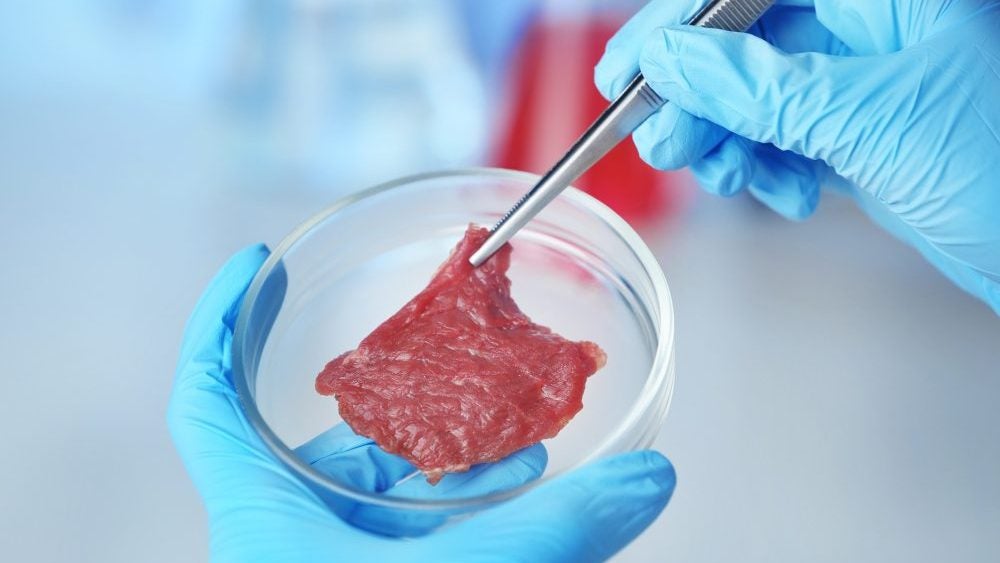
A Danish health and sustainability foundation is supporting a research project to reduce the cost of producing cell-based food.
The Novo Nordisk Foundation, which holds a controlling interest in pharmaceutical firm Novo Nordisk and bio-technology company Novozymes, is investing DKr17.6m (US$2.5m) in the project – Sustainable Production of Cultured Meat and Milk, dubbed SusCellFood.

Discover B2B Marketing That Performs
Combine business intelligence and editorial excellence to reach engaged professionals across 36 leading media platforms.
Research into using yeast and algae as an alternative to the expensive fetal bovine serum employed in the manufacture of cell-based food is being led by Aarhus University in Denmark through its department of food science.
“The purpose is to develop a less expensive and more ethically sound way to produce cell-based meat and milk,” according to a statement from the Hellerup-based Novo Nordisk Foundation, which added fetal bovine serum “creates both ethical and climate-related problems that require scientific solutions”.
With the investment backing, “researchers will develop technologies that use nutrients from yeast and algae in combination with growth factors to replace the fetal bovine serum”, the Foundation explained. “This will provide a less expensive and more climate-friendly culturing method that is also ethically sound.”
Lasting four years, the SusCellFood project will also involve the Technical University of Denmark in Lyngby, as well as “several researchers located outside Denmark who are experts in cultured-food production”.

US Tariffs are shifting - will you react or anticipate?
Don’t let policy changes catch you off guard. Stay proactive with real-time data and expert analysis.
By GlobalDataClaus Felby, the senior vice president for biotechnology at the Foundation, said: “Cell-based production of meat and milk has the potential to support the alternative production of existing food products, but technological and scientific progress is needed in this area.
“We expect that the research in SusCellFood will contribute to this development and that the results can be another biotechnological advance in the green transformation of our food production.”
Indicative of the challenges in producing food from animal cells at a comparable price point, US start-up New Age Eats announced last week the business had ceased trading. CEO Brian Spears blamed the current funding environment for the difficulty in securing new finance.
“Investors proved to be the most efficient way to validate whether cultivated meat would be commercially viable. Unfortunately, with recent capital market turmoil, we have been unable to attract investment,” Spears explained.
Singapore is so far the only jurisdiction to approve the commercial sale of lab-grown meat, granting the green light to US firm Eat Just.
However, inroads are being made in the US, where the US Food and Drug Administration made an announcement last week for a cell-based food product from Eat Just. The FDA said it had completed a “pre-market consultation” with the business, which is developing cell-based chicken through its Good Meat arm, and had “no further questions at this time about the firm’s safety conclusion”.
The next step is for the US Department of Agriculture to inspect and clear the product for sale.
Upside Foods, meanwhile, received the same FDA notice last year. In November, California-based Upside Foods was given a so-called ‘no questions’ verdict for its production by the FDA, the first time the authority had done so.
Within Denmark, the Novo Nordisk Foundation said it anticipates the SusCellFood project “can contribute to establishing a strong research ecosystem within potential cell-based food production in the future”.
Jette Young, an associate professor at Aarhus University, added: “This research project is important because we will develop a medium that is both ethically acceptable to consumers and cost-effective, making it less expensive and thus a real alternative to fetal bovine serum, which we use today to develop cultured meat and milk.”





